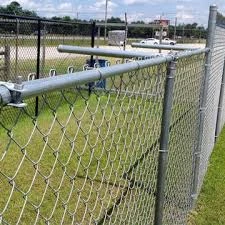The Best Soldering Iron for 8 Gauge Wire
When it comes to soldering heavy gauge wires, such as 8 gauge wire, choosing the right soldering iron is crucial for achieving strong, reliable connections. The process of soldering involves melting solder, a fusible metal alloy, to create an electrical connection between two conductors. For thicker wires like 8 gauge, which have a larger diameter and require more heat, a standard soldering iron may not suffice.
Power and Temperature Control
The most important factor when selecting a soldering iron for 8 gauge wire is its power. A soldering iron with a power rating of at least 100 watts is recommended. Higher wattage not only heats the tip quickly but also maintains the temperature under heavier loads, ensuring that the solder melts properly. It is also beneficial to have a soldering iron with adjustable temperature control. This feature allows the user to set the appropriate temperature for the specific soldering task, accommodating various types of solder and ensuring a quality joint.
Tip Size and Material
For 8 gauge wire, the tip size of the soldering iron is another critical consideration. A larger chisel or flat tip is ideal for soldering thicker wires, as it provides more surface area for heat transfer. Additionally, the material of the tip is important. Copper tips, coated with nickel or iron, are highly conductive and heat up quickly, making them a great choice for heavy-duty soldering.
soldering iron for 8 gauge wire

Soldering Technique
Using the right soldering technique is essential for working with 8 gauge wire. Begin by cleaning the surfaces to be soldered, removing any oxidation or contaminants. Tinning the wire ends with solder before connecting them can enhance the quality of the final joint. When soldering, heat the wire and the solder simultaneously and allow the solder to flow into the joint, creating a strong bond. Holding the soldering iron in place until the solder fully melts ensures a proper connection.
Safety Considerations
Soldering with high-powered equipment can pose safety hazards. Always work in a well-ventilated area to avoid inhaling fumes, and consider using safety goggles to protect your eyes from splattering solder. A soldering iron holder is vital for avoiding accidental burns, as the tip can remain extremely hot even after use.
Conclusion
In summary, when choosing a soldering iron for 8 gauge wire, look for a device with a minimum power rating of 100 watts, adjustable temperature settings, and a suitable tip size. Mastering proper soldering techniques and adhering to safety practices will lead to successful, durable solder joints. Investing in the right tools and following best practices can make a significant difference in your soldering projects, transforming your electrical tasks from a challenge into a seamless experience.
















